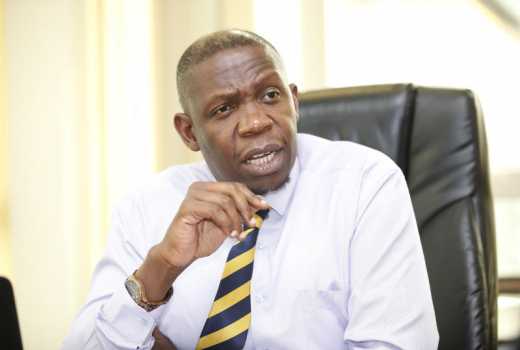×
The Standard e-Paper
Smart Minds Choose Us

Seated in his corner office in Westlands, the Nairobi Securities Exchange (NSE) Chief Executive Geoffrey Odundo beams and visualises lots of green shoots on the trading board.
His motivation comes from the charging bull sculpture on his desk, directly facing him. “Here, there are only bulls. Lots of them. No bears,” he says with a contagious smile.